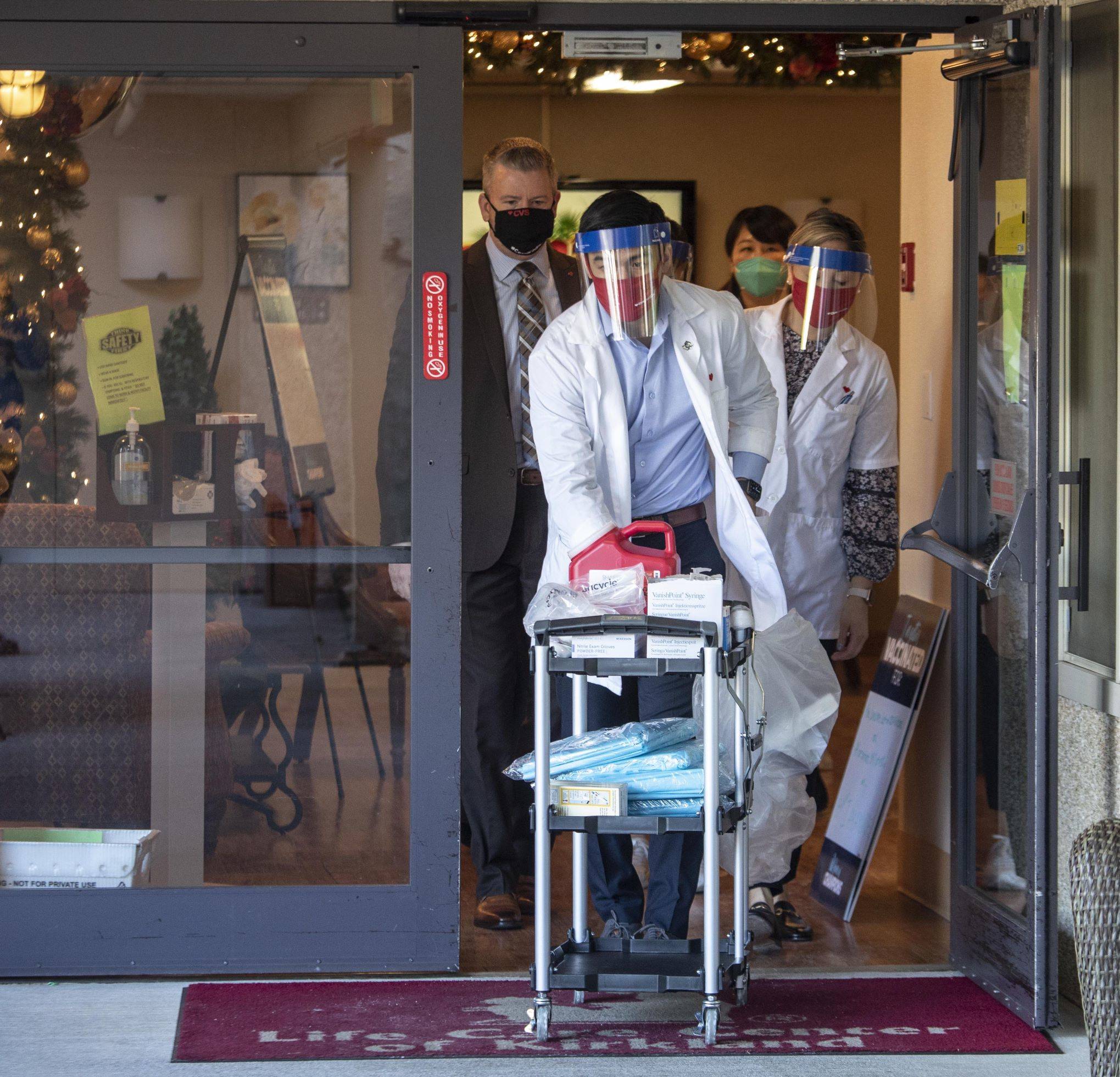SEATTLE — For exactly 10 months, longer than most anyone else in the U.S., nurse Alice Cortez’s world has been shattered by COVID-19.
Cortez was among those who noticed suspicious respiratory symptoms among her residents at Life Care Center of Kirkland in early February. She called health department officials and initially identified the COVID-19 cluster that was first seen as an outlier and is now a blip on the list of deadly outbreaks. She cared for patients and watched several she had known for years die.
On Monday, 303 days after the first COVID-19 death at her facility — the first in the U.S. — was made public, Cortez was the first staff member to receive the vaccine inoculating her against the virus.
“What I feel now is a new life, a new beginning, but a better life,” she said immediately after she was jabbed by a pharmacist outside the Eastside facility. She didn’t even feel the needle, she added.
The outbreak at Life Care Center of Kirkland effectively marked the start of the COVID-19 crisis in the United States, signaling that the virus had not only made its way into a community but had likely spread undetected for weeks.
Within a month, 39 residents and seven others died, and dozens more were sickened with the virus. The outbreak served to portend how deadly the virus would be in other long-term care facilities; in Washington state, 53% of all COVID-19 victims lived in, worked at or had visited a long-term care site. The virus continues to spread — more than 500 facilities in the state have at least one active COVID-19 infection, according to the Washington Department of Social and Health Services.
Monday was the first day long-term care facilities could receive vaccines under a federal partnership with CVS and Walgreens, which is handling shots for the bulk of the state’s roughly 4,000 long-term care facilities. A CVS representative said four other Washington facilities would receive injections on Monday, and more than 800 skilled nursing and assisted-living sites will receive them in the next month.
Some facilities have already received vaccines through Consonus, another pharmacy that was allocated about 1,000 doses of the state’s initial shipment of the Pfizer vaccine.
Along with health care workers, the state has recommended that nursing home residents receive the vaccine first, followed by residents of assisted-living facilities, adult family homes and other care sites. State officials have set a goal for all long-term care residents to receive the first dose of the two-dose vaccine by the end of January.
At Life Care, 95% of the facility’s 69 residents and 87% of staff members received the vaccine, according to Nancy Butner, vice president of Life Care’s Northwest Division. The residents were instructed to lie on a bed for 15 minutes afterward, resident Patti Taylor said.
Taylor called the vaccine “just like any other injection,” adding that at 96, she’s had quite a few injections in her lifetime.
“I just hope people do respond to this,” she said. “They shouldn’t be afraid.”
As she rolled up her sleeve on the chilly but sunny morning, Cortez said she thought of the residents she’s lost since February. One had lived at the facility for the entirety of Cortez’s 18 years there, and encouraged Cortez to pursue classes to further her medical training, telling her “Alice, you would be such a great nurse!”
Another resident was so excited about the vaccine that she constantly asked Cortez about it. “Can I get the vaccine?” she would inquire. Yes, Cortez would reply. “Is it coming soon?” Yes. “Pfizer or Moderna?” Pfizer.
The resident died last week, of non-COVID-related causes.


